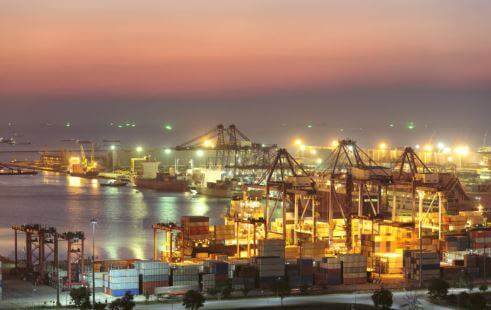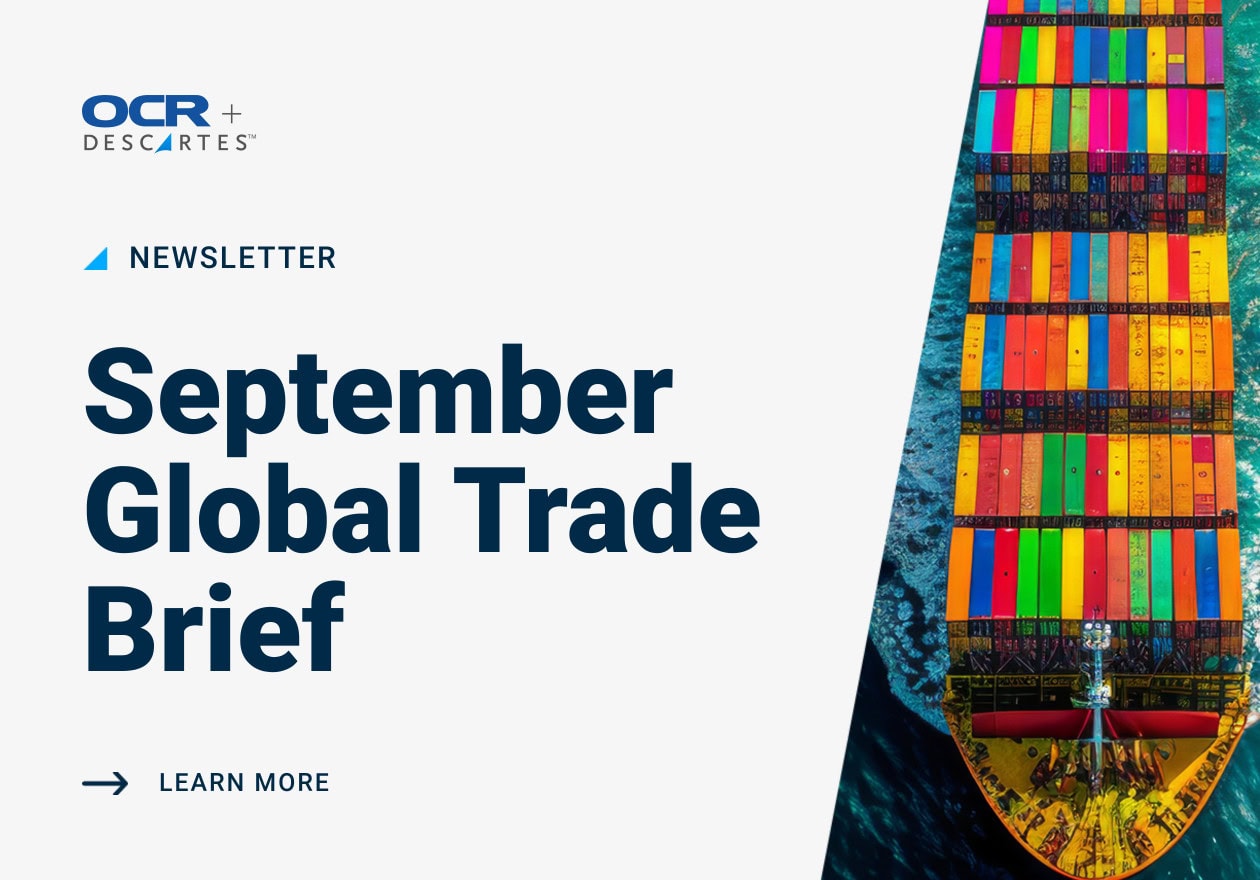U.S. State Department requests comments concerning a review of the controls implemented in recent revisions to Categories V, X, and XI of the USML. Similarly, the State Department’s review is intended that the USML reviews are clear, do not inadvertently control items in normal commercial use, account for technological developments, and properly implement the national security and foreign policy objectives of the United States.
TARIFF CLASSIFICATION OF PET CARRIERS QUAKER PET GROUP, LLC V. UNITED STATES
Plaintiff Quaker Pet Group, LLC (“Quaker Pet”) contests the denials of its administrative protests by U.S. Customs and Border Protection (“Customs”) and disputes the tariff classification under the Harmonized Tariff Schedule of the United States (2012) (“HTSUS”) which Customs determined for five of its pet carrier products.
Specifically, Quaker Pet contends that pets are not “personal effects” and therefore the pet carriers — cloth and mesh carrying bags used for transporting pets — are classifiable under the residual provision for textile articles, HTSUS heading 6307, carrying a duty rate of seven percent. The United States (“the Government”) argues that Customs correctly classified the pet carriers under the HTSUS heading 4202, which covers travel, sports, and similar bags, and carries a 17.6 percent duty rate. The court concludes that the pet carriers are not, as a matter of law, classifiable under heading 4202. However, the relevant record is not sufficiently developed yet for the court to determine whether the products are classifiable under heading 6307. Thus, Quaker Pet’s motion for judgment on the pleadings is granted in part and denied in part, and the parties are directed to file a proposed schedule for future proceedings.
TARIFF CLASSIFICATION OF TOILET PAPER HOLDERS MOEN INC. V. UNITED STATES
Moen Inc. (“Plaintiff” or “Moen”) argues that U.S. Customs and Border Protection (“Customs”) improperly denied its protests challenging the classification of its subject merchandise. Plaintiff contends that all of its toilet paper holders are entitled to duty-free treatment because the products are classifiable under HTSUS subheading 8302.50.00, which encompasses “base metal mountings,” including “hat-racks, hat pegs, brackets and similar fixtures, and parts thereof.”
The United States (“Defendant” or “Government”) maintains that Customs properly classified the imported toilet paper holders under HTSUS subheading 7907.00.10, which covers “other articles of zinc” including “toilet and sanitary wares.” The Government argues, in the alternative, that Moen’s “Sienna” product should be classified under HTSUS subheading 7324.90.00, which encompasses other products, including parts, of “sanitary ware and parts thereof, of iron or steel.”
For the reasons discussed below, the court grants Plaintiff’s motion for summary judgment and denies Defendant’s cross-motion for summary judgment with respect to the classification of the subject imports of toilet paper holders, which are classifiable under HTSUS subheading 8302.50.00 and will receive duty-free treatment.
EFFECTIVE FEBRUARY 14TH, DEPARTMENT OF STATE AMENDS ITAR PART 126 TO ADD REFERENCE TO SOUTH SUDAN
The U.S. Department of State’s Directorate of Defense Trade Controls (DDTC) has amended Part 126 of the International Traffic in Arms Regulations (ITAR) to include reference to South Sudan in its regulations on prohibited exports, imports, and sales to and from certain countries, and to update defense trade policy toward South Sudan by applying a policy of denial on the export of defense articles and defense services to South Sudan, except as otherwise provided.
HOUSE FOREIGN AFFAIRS COMMITTEE CHAIRMAN ED ROYCE INTRODUCES BIPARTISAN EXPORT CONTROL REFORM BILL
The Export Control Reform Act of 2018 (H.R. 5040) will help ensure the U.S. maintains its technological advantage in science, engineering, manufacturing and other industries critical to our national and economic security. This bill represents the first real push to establish permanent export controls since the Cold War-era Export Administration Act of 1979 (EAA) lapsed in 2001.
Specifically, the Export Control Reform Act of 2018 (H.R. 5040):
- Repeals the lapsed EAA and replaces it with a modern, permanent statutory authority to better regulate U.S. dual-use and Department of Commerce-licensed military exports.
- Requires that export controls ensure continued U.S. leadership in science, technology, engineering, manufacturing and other sectors.
- Provides new authority to identify and appropriately control critical emerging technologies.
- Supports U.S. diplomatic efforts to promote greater international coordination and cooperation on export controls.
TFTEA DRAWBACK POLICY UPDATE
On February 24, 2018, CBP implemented the Drawback requirements mandated by Section 906 of the Trade Facilitation and Trade Enforcement ACT of 2015 (TFTEA). CBP issued Drawback interim policy reflecting CBP’s tentative and conditional framework for drawback pending the issuance of a Final Rule to implement the regulatory changes pending for TFTEA-Drawback claims.
CBP updated language in the interim policy document regarding mixed-use claims and claims with underlying entries that are the subject of reconciliation. Previous policy required documentation for mixed-use claims and claims with reconciled underlying entry summaries to be uploaded into DIS as part of a complete claim, within 24-hours of claim acceptance in ACE. Revised language updates the interim policy document to allow filers to submit DIS uploads for mixed-use claims within 30-days from the time the filer receives the mixed-use informational message in ACE. Revised language also updates the interim policy document to allow filers to submit DIS uploads for reconciliation within 30- days of the liquidation of all reconciliation entries associated with imports on the drawback claim. As the regulatory process and automation coalesce, CBP may issue additional guidance in order to keep members of the trade apprised of future changes and requirements.
INCOMPLETE DRAWBACK CLAIMS FILED IN ACS PRIOR TO FEBRUARY 24, 2018
If you filed an ABI drawback claim in ACS prior to the Deployment G, Release 4 cutover on 2/24/18 and the paperwork for claim completeness was not provided to the Drawback Port until after 2/24/18, you must resubmit the drawback claim in ACE with a new claim number.
If any of the underlying imports will now exceed the timeframe limitations, you must remove them from the drawback claim to get the claim accepted into the system. After it is accepted, please work with the Drawback specialists to backdate the claim date and put the claim into trade control status. When that is done you can add the underlying imports that were previously exceeding the timeframe limitations back onto the drawback claim and resubmit. You must ensure that the transmission date in the A-Record is the back-dated date to preserve your claim filing date.
STATE DEPT. ISSUES DETERMINATION ON NORTH KOREA’S USE OF CHEMICAL WEAPONS
Pursuant to Sections 306(a), 307(a), and 307(d) of the Chemical and Biological Weapons Control and Warfare Elimination Act of 1991, as amended (22 U.S.C. 5604(a) and Sec 5605(a)), on February 22, 2018, Secretary of State Rex Tillerson determined that the Government of North Korea has used chemical weapons in violation of international law or lethal chemical weapons against its own nationals. As a result, the following sanctions are hereby imposed to provide additional legal bases for measures already in effect:
- Foreign Assistance: Termination of assistance to North Korea under the Foreign Assistance Act of 1961, except for urgent humanitarian assistance and food or other agricultural commodities or products.
- Arms Sales: Termination of (a) sales to North Korea under the Arms Export Control Act of any defense articles, defense services, or design and construction services, and (b) licenses for the export to North Korea of any item on the United States Munitions List.
- Arms Sales Financing: Termination of all foreign military financing for North Korea under the Arms Export Control Act.
- Denial of United States Government Credit or Other Financial Assistance: Denial to North Korea of any credit, credit guarantees, or other financial assistance by any department, agency, or instrumentality of the United States Government, including the Export- Import Bank of the United States.
- Exports of National Security-Sensitive Goods and Technology: Prohibition on the export to North Korea of any goods or technology on that part of the control list established under section 2404(c)(1) of the Appendix to Title 50.
ADD/CVD INVESTIGATIONS ON IMPORTED LARGE DIAMETER WELDED PIPE
The United States International Trade Commission (ITC) issued a release stating that the ITC has determined that there is a “reasonable indication” that a U.S. industry is materially injured (or threatened with material injury) because of imports of large diameter welded pipe from Canada, China, Greece, India, Korea, and Turkey—imports that are allegedly sold in the United States at less than fair value. The U.S. Commerce Department will continue with its antidumping and countervailing duty investigations. The preliminary countervailing duty determinations are expected by 16 April 2018, and the antidumping duty determinations by 29 June 2018.
CASE STUDIES
DEPARTMENT OF COMMERCE PENALIZES TRILOGY INTERNATIONAL ASSOCIATES FOR RUSSIAN EXPORT VIOLATIONS
Facts:
On or about January 23, 2010, April 6, 2010, and May 14, 2010, respectively, Trilogy International engaged in conduct prohibited by the Regulations by exporting items subject to the Regulations and controlled on national security grounds to Russia without the required BIS export licenses.
- The items involved were an explosives detector and a total of 115 analog-to-digital converters. The items were classified under Export Control Classification Numbers 1A004 and 3A001, respectively, controlled as indicated above on national security grounds, and valued in total at approximately $76,035.
- Each of the items required a license for export to Russia pursuant to Section 742.4 of the Regulations.
Conclusion:
The U.S. Department of Commerce’s Bureau of Industry and Security has issued $200,000 in penalties and 10-year export bans to Trilogy International Associates and its president for exporting an explosives detector and other equipment to Russia without the required licenses.



